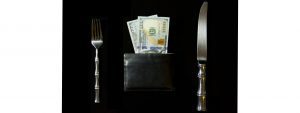One USA Dollar to Birr: $ is Being Sold at 115 Birr in Banks

Ethiopia has been facing a shortage of foreign currency for a while now. The ongoing socioeconomic challenge, the widely spread illegal exchanges or black market, and all the other problems she’s been facing as a developing country have aggravated the economy.
Even though governmental and private banks have been struggling to provide the USA dollar to birr exchange service to their customers despite the challenges, the dawn falling economy and the merchants trying to keep their head above the water led the currency rate to the worst of its history. In this dilemma, it seems like the banks have found an opportunistic line in between.
Some of the banks manage to stretch a system between the official external illegal USA dollar to birr exchange system( the black market) and the legally aligned one . “the commission currency system “the current banks in Ethiopia, especially the private ones, are now demanding a commission from customers to buy a currency.
What the National Bank of Ethiopia has said about this USA Dollar to Birr Exchange
National Bank of Ethiopia recently issued a daily price of 54 birrs and 82 cents for banks to sell one USA dollar to birr. It has been expressed that the commission requested from this private banks for one American dollar is 55 to 60 birr; this has brought the selling price of one US dollar to a total of 110 to 115 birr, and the requested commission is to be shared by the individuals with currency deposits and the banks.
The transaction is done by bank employees who are the brokers in between to connect the individuals with foreign currency deposits in banks and the customers who want the currency. The merchants who require the money to import products have to allow this,pay the requested commission, and get their exchange in order to keep there job on line . To calm this situation, the government ordered that 38 types of products should not be allowed by banks to accept foreign currency.
The fact that the USA dollar to birr exchange commission paid for foreign exchange is higher than the price being issued by the National Bank indicates that Ethiopia’s foreign currency shortage has reached a worse level than ever before. Many are concerned that the Ethiopian economy may face persistent inflation in the future due to this foreign exchange transaction.
Three years ago, the National Bank distributed only 100 million US dollars to private banks, weighing their foreign exchange earnings, to stabilize the currency market. But the fact that it has been years since the National Bank of Ethiopia made its previous supply of foreign currency to stabilize the foreign exchange market and that the State Commercial Bank does not allow much money for importers made the situation worse.
In addition to the economic recession and the war that Ethiopia went through, the economic reforms that were supposed to carry out haven’t been implied as quickly as they were supposed to be, which has prolonged the loans that were going to be provided from the World Bank, the International Monetary Fund and other lenders. The one negotiation with the Group of 20 member states to extend the loan repayment period and obtain additional loans has also needed to be faster. This year’s six-month export performance is about 1.7 billion, which is less compared to the same period last year’s report is another threat to worsen the deficit.